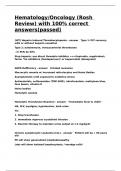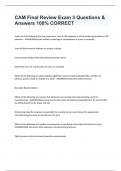Exam (elaborations)
SPEA-V 186 Final Exam Questions With Solutions Scored A+.
- Course
- SPEA-V 186
- Institution
- Indiana University-Bloomington
How is Debt funded? - Answer •1) Treasury Bonds-Federal Gov't •2) Municipal Debt- State and Local Gov't Unfunded liabilties - Answer A debt in the future that does not have money set aside Government debt results from 3 conditions - Answer 1) covering deficits (annual expenditur...
[Show more]












